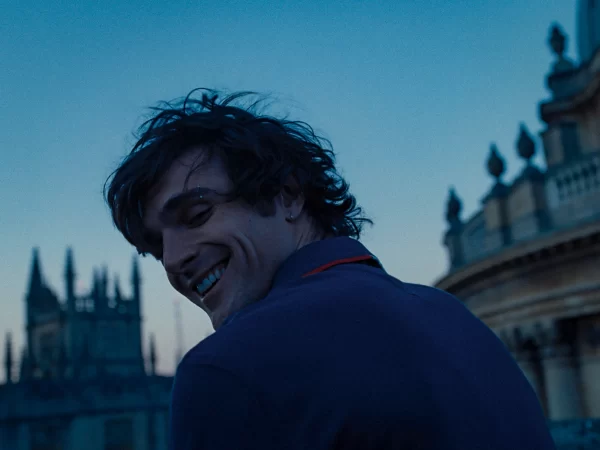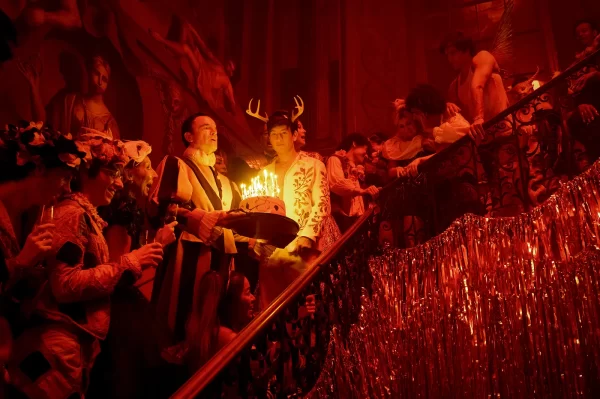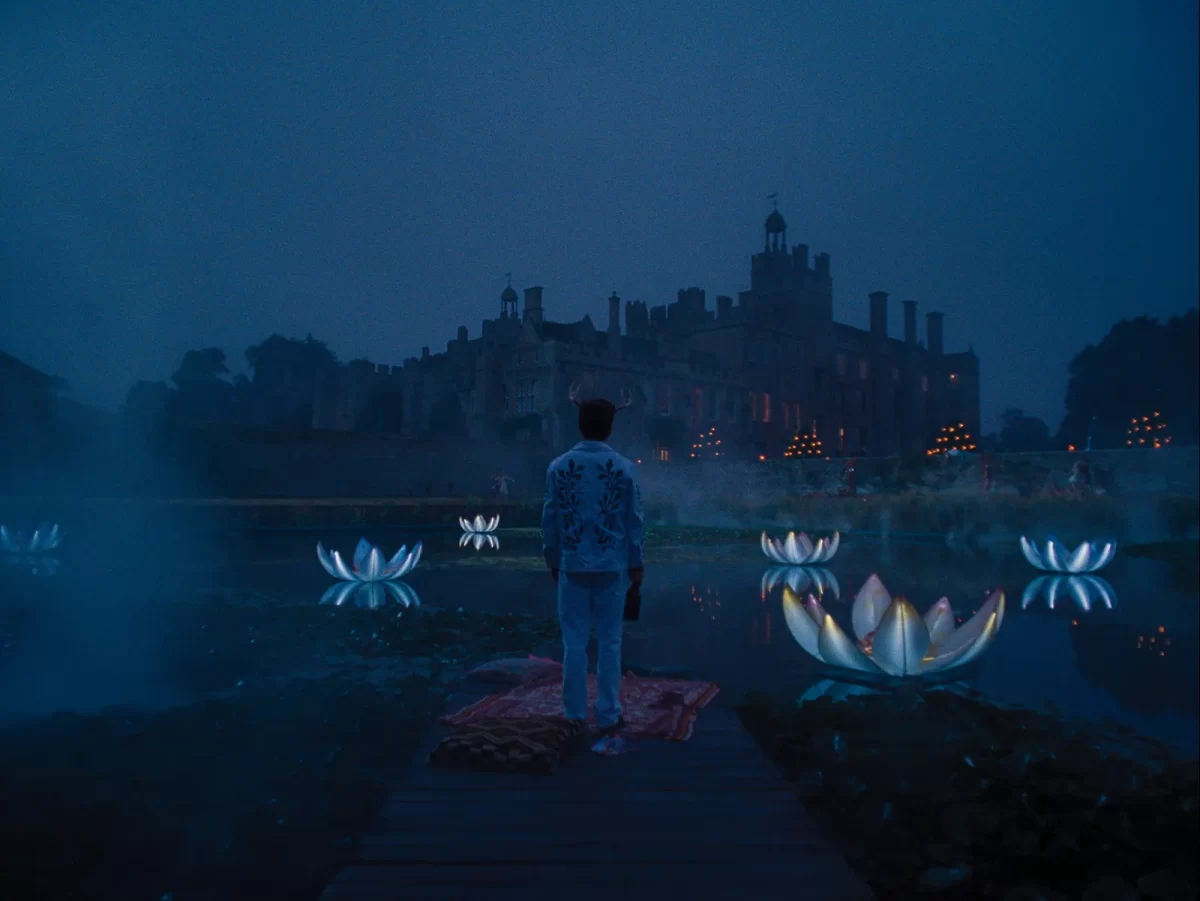It’s murder on the dance floor—and in the bathroom, the labyrinth and the hospital bed. If you haven’t see an edit of Jacob Elordi dancing with a cowboy hat on or one too many advertisements for bathwater scented candles, or even the deathly catchy 2000s song that’s made hit lists thanks to its appearance in a chaotic dance sequence, then you haven’t been exposed to the horrific yet must watch movie “Saltburn.”
Oliver Quick, played by Barry Keoghan, is a bright freshman on scholarship at Oxford university. Although his lack of affluence initially alienated him from his classmates, he’s eventually befriended by popular and attractive Felix Catton (Jacob Elordi), who fails to mention he‘s related to one of the richest families in the entire school. When Catton learns of Quick’s family situation, specifically the recent death of his father and his addict mother, he invites him to stay at his house, aka the biggest mansion I’ve ever seen in my life, Saltburn, for the summer.

When I first heard of the movie I was immediately set on watching it. Nothing would stop me, not even the parental controls on my amazon prime account—although maybe I should have reevaluated my decision when the appearance of what seemed to be every mature topic a movie could possibly contain flashed as a warning just seconds after I clicked play. From just the trailer alone, I was hooked. The movie seemed to have a bit of everything in it but I couldn’t possibly imagine what could be so horror-ish about college students spending a summer in a mansion. But I soon wished I stayed in that oblivious bliss.
In a place almost too glamorous not to be rotting underneath its excessive chandelier fixtures, elegant floral wallpapers and gold plated skirting boards, the more time Quick spends with Catton, the more Saltburn proves to be exactly that: superficially extraordinary and destructively addictive. Fennel’s experimentation with camera angles and her utilization of colors and light throughout the film allows these qualities of the house and its residents to uphold its deceitful beauty while also leaving me dumbfounded. What was most surprising to see, however, was the movie’s portrayal of the lifestyle differences of the crazy rich through the obsession of each individual exposed to its alluring nature.
Quick is the most effective example of this, as he becomes intent on maintaining the life he’s gained in those few months spent in the Catton’s mansion. Things like lavish family dinners, butlers being creepily around every corner to cater to his needs, having days allotted to only laying poolside in crisp sunrays or to run in gorgeous grassy fields on the outskirts of the house are just a few of the many indulgences Quick craves. Contradictorily, what most drives his yearning to stay is not those experiences—it’s Felix. His extreme obsession over Catton drives the film and, combined with its mysterious style of storytelling, contributes greatly to the movie’s off-putting quality.
Catton is portrayed continuously throughout the film as a magnet averse to the effects of his golden boy glow. Elodri does a fantastic job of representing that innocent look, while also hinting at the darker aspects unbeknownst to those who initially perceive him. This makes it near impossible for the audience to not feel for what happens to him as the film goes on, and hard for Quick to resist his desires. Quick additionally retains an innocent ambience, only instead of Catton’s “he can’t do anything wrong” look, Quick’s stems from a more pitiful demeanor: “he’s not capable of doing any harm.” Keoghan’s performance especially portrays the condescending attributes of his character to an eerie T, furthering the enthrall of the movie as it progresses from semi-normalness to disturbing insanity.

The movie was, a lot, to put it plainly. It’s not something you’d watch for a jolly good time, it’s the kind of movie that takes a lot of energy to get through—and that’s excluding the alarming parts. And there were many alarming parts. I don’t see the point of including overly graphic scenes in general, so having to see them not once, but a multitude of times made the movie hard to watch at times. On top of that, the movie managed to simultaneously develop and destroy any bit of understanding I had gained while watching in the most disturbing ways possible. However, the experience brought no regrets in the end.
Although the movie is far from perfect, the more I began to accept the confusion and discomfort that came with it, the more I realized that this movie thrived due to its insanity. It needed those outlandishly grotesque visuals to display the craziness that’s entwined with the excessively rich life, and consequently the desperate lengths people would go to to maintain it. Instead of trying to endure it, I grew to appreciate the surreal experience that came with watching the intense and psychedelic movie. Did I really want to see everything I saw to get to this conclusion? No, but it’s okay because that’s what bleach is for.




